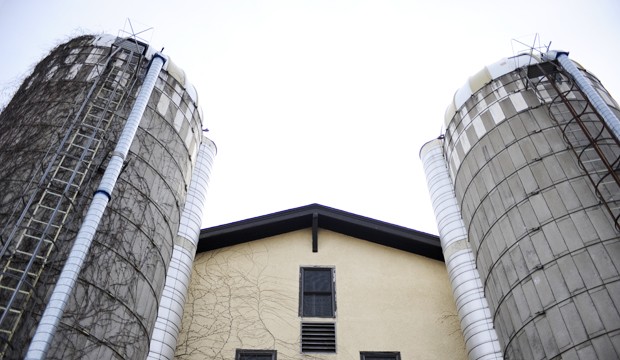With the rise in smaller organic farms changing the face of the farming industry, some University of Minnesota students are getting a unique hands-on opportunity to learn the trade. Students in the class âÄúStudent Organic Farm Planning, Growing, and Marketing âÄù learn about different aspects of growing organic produce and then apply their knowledge on a small farm on the St. Paul Campus. According to new data from the United States Department of Agriculture, between 2002 and 2007 the number of large farms, that is farms with more than 500 acres, have decreased by nearly 6 percent. Meanwhile, more than 2,000 small farms, on less than 180 acres, have opened âÄî a nearly 5 percent increase. At least part of the change in the farming industry in Minnesota can be attributed to the rise in organic farming, Bud Markhart, a University horticulture professor who teaches the organic farming class, said. Markhart said he expects the trend to continue, commenting that the organic industry is âÄúon the cusp of a major acceleration.âÄù Courtney Tchida, student programs coordinator for the Minnesota Institute for Sustainable Agriculture, said the student organic farm helps students âÄúget a taste of what the whole world of organic farming is really about.âÄù MISA, formed in the 1990s in response to the growth of the sustainable agriculture field, helps run the UniversityâÄôs student organic farm and the sustainable agriculture minor program in the College of Food, Agriculture and Natural Resource Sciences. MISA has seen steady growth over the past decade as people become more aware of sustainable and organic agriculture, and Tschida said students have been a big contributor to that growth. âÄúI think a lot of it is the consciousness of the mainstream shifting. People talk about local foods now, people talk about organic food a lot more than they ever did before,âÄù she said. âÄúAnd with that, you see more and more students exploring it.âÄù Andrew Hermanson, a horticulture senior taking the organic farming class, said an increased focus on organic farming has helped spur the growth in organic farms. âÄúJust in terms of future generations, soil health and food health and food security matters more,âÄù Hermanson said. Hermanson, whose interest in farming came from growing up on a small vegetable farm, said he hopes to one day work on an organic farm. Markhart said the organic farming class is a start, but the University still needs to offer more applied courses to fully prepare students for work on a farm. âÄúWe havenâÄôt developed a farmer training program that will enable somebody to go out and, based on just the education they get here, successfully run a small organic farm,âÄù he said. âÄúThe only way to really way to know how to work a farm is to go work on a farm.âÄù Markhart said organic farming offers an opportunity to get into farming without buying large plots of land, but the economics of selling and marketing the produce isnâÄôt covered as well in the curriculum, which could make it difficult to keep a farm operating. âÄúThere are a lot of organic farmers that go out of business not because theyâÄôre not good growers,âÄù he said. âÄúItâÄôs just that theyâÄôre not good business people and it really takes both to be successful.âÄù While the class wonâÄôt prepare students for the economics of farming, it lets them get a feel for what the work entails, something Markhart said helps them determine whether they want to pursue a career in the field. âÄúIt provides a taste,âÄù he said. âÄúIt provides students with some hands on experience to know if this is what they want to do or not.âÄù









